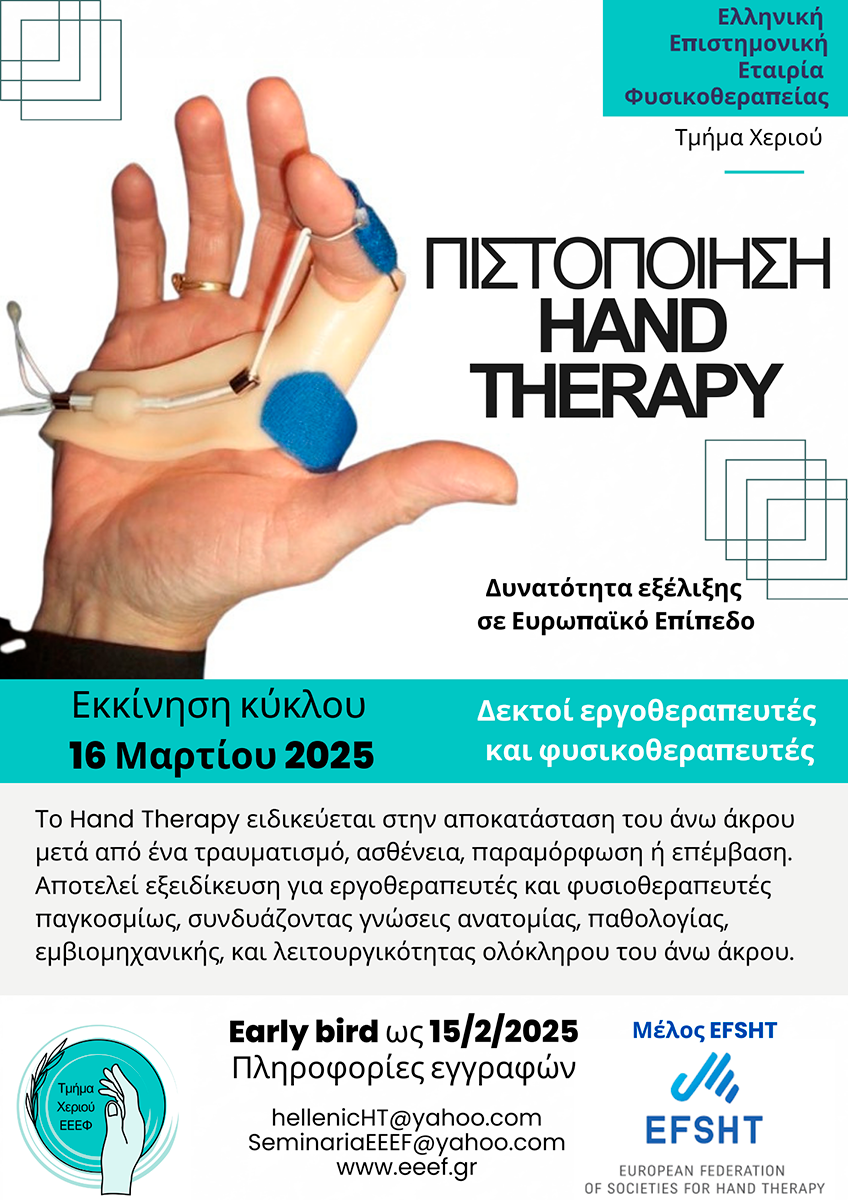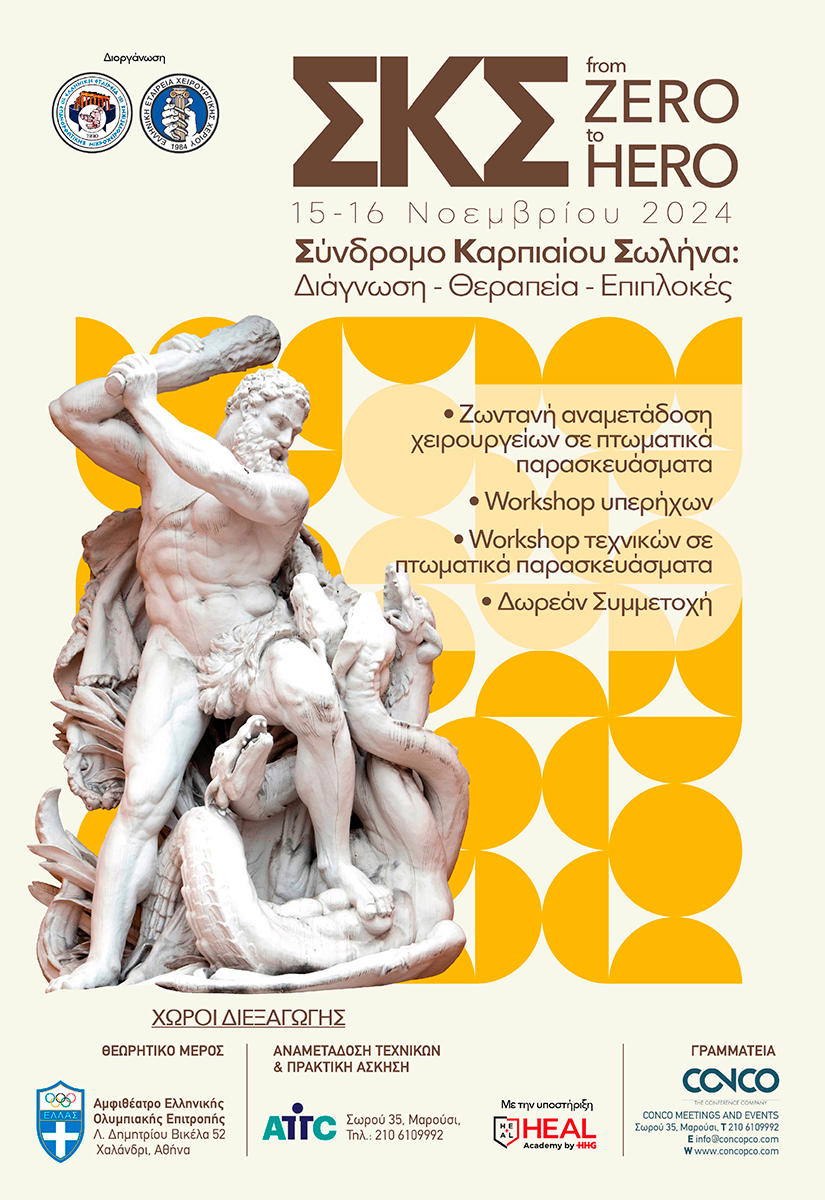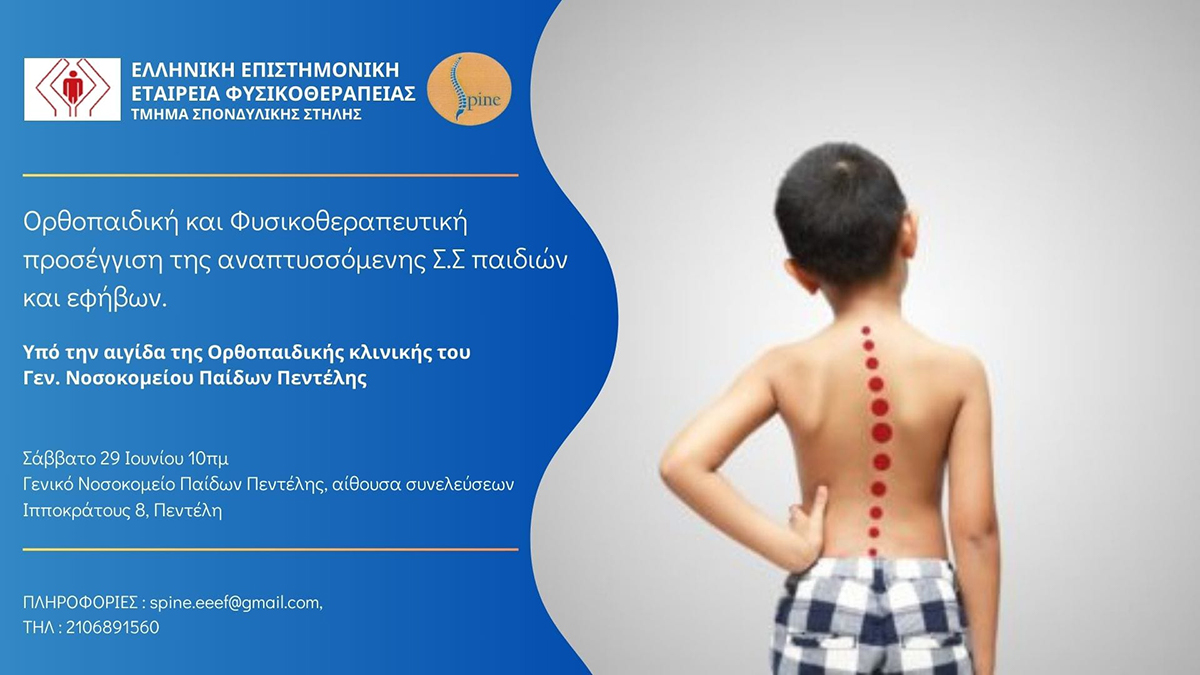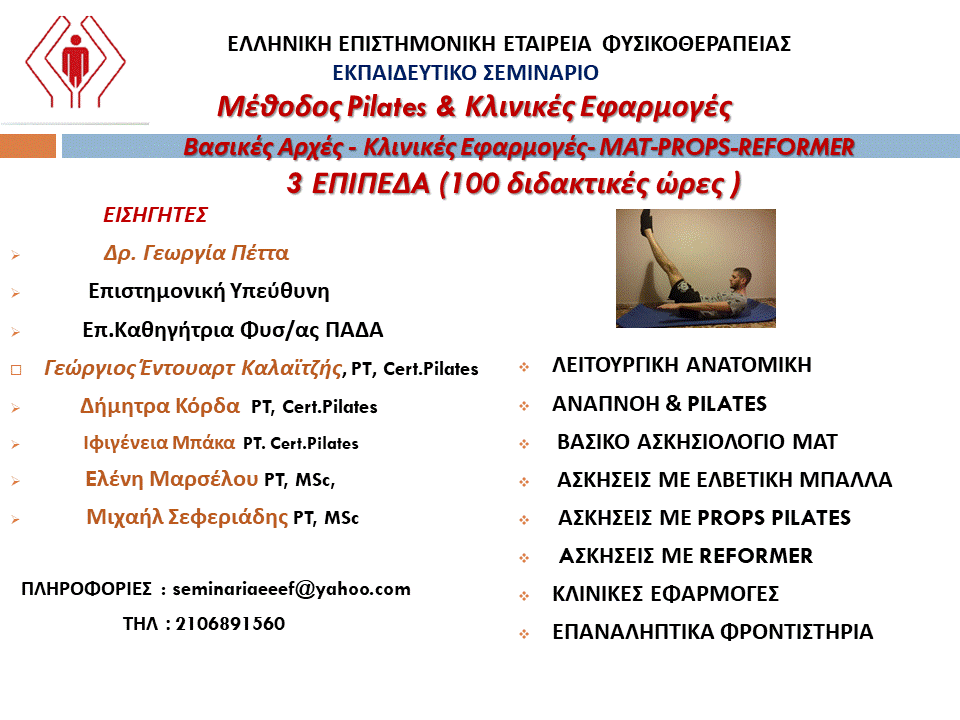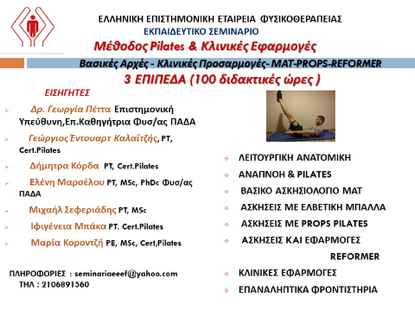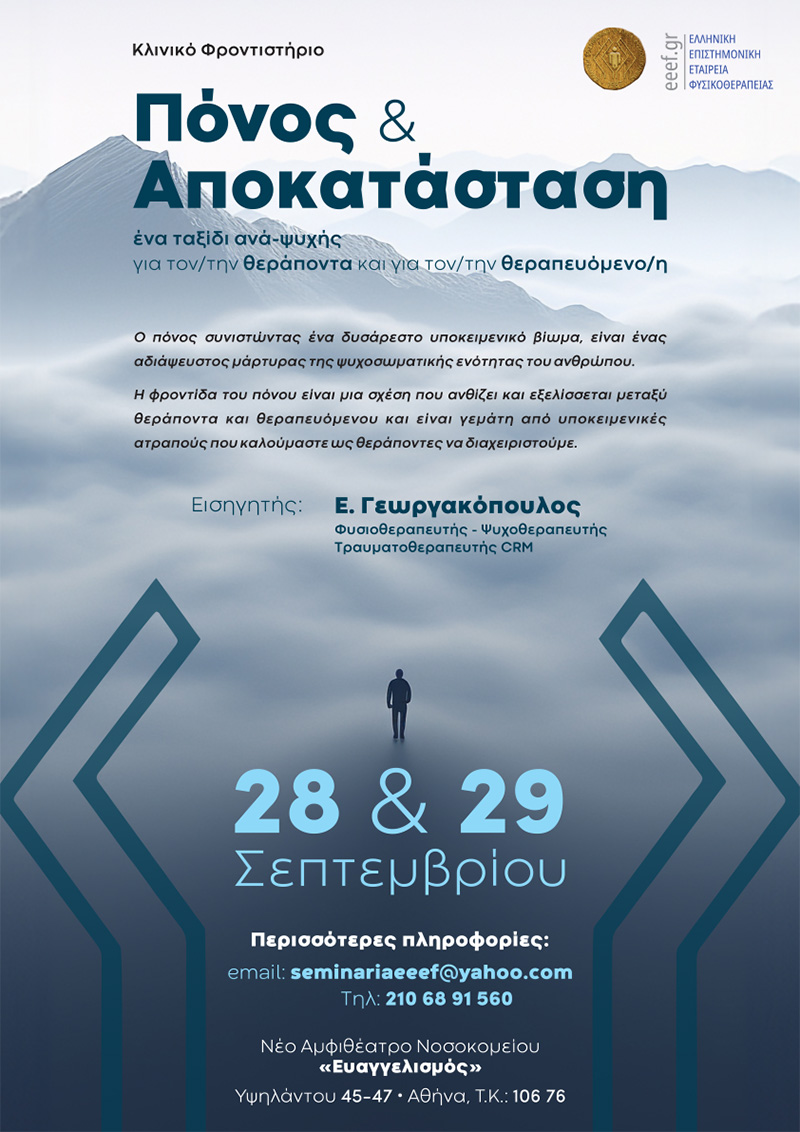ThemFis_Vol_6_Issue_1_JanMarch2010_1-12
The Effectiveness of Forced Use of the Upper Extremity in Children with Cerebral Palsy
Sofia Nousi, Anna-Maria Sirrou
The benefits from the forced use of the upper limb in adult hemiplegic patients have been reported in several studies. The method was initially developed by Taub (1981) and it entails the constraint of the healthy upper limb, in order to enhance the use of the hemiplegic one. The protocol method was perfected later by Wolf for application in adult hemiplegics. Significant statistical differences have been reported as far as the functional rehabilitation of the upper limb is concerned. Through the evaluation with imaging methods it was demonstrated that the functional rehabilitation of the upper limb is accompanied by functional reorganization of the cerebral cortex in hemiplegic patients. The method has started getting applied to children with Cerebral Palsy (CP). The various clinical manifestations of CP have imposed the need to modify the method, in order for it to be effective in children. The current literature review will attempt to record and evaluate the current data and investigate the advantages and the limitations of the application of the method to children with CP.
The method seems to be effective when applied to hemiplegic children with CP. It emerges that the initial protocol bust be modified and adjusted to the individual need of each child. Even in children there are reports of reorganization of the cerebral cortex, both in structural and functional level.
ThemFis_Vol_6_Issue_1_JanMarch2010_13-22
Reliability of the PEDI, GMFM, TUG Tests and their Clinical Importance in Children with Cerebral Palsy
Thomas Besios, Nikolaos Aggeloussis, Vassilios Gourgoulis, Sophia Batsiou
The aim of the present study was the control and determination of the PEDI, GMFM and TUG test?s reliability in children with cerebral palsy. 20 children with cerebral paralysis took part in the research (7 with tetraplegia, 6 with diplegia and 7 with right hemiplegia). The basic inclusion criterion was the absence of other dysfunctions such as learning difficulties, loss of sensation, or any kind of illness. The individuals should not have undergone orthopaedic operation or drug treatment 6 months prior to the research, that would influence the spasticity, as well as to not have participated in other therapeutic programs but for physiotherapy. For the collection of the data, PEDI, GMFM, TUG tests were used. Then the measurements were carried out in two days. The first (T1) and second (T2) measurement, which were conducted a day apart from each other, were conducted under the exact same conditions. In the present study the GMFM, PEDI and TUG tests? clinical importance and reliability were checked. The results showed that the tests posses a great degree of reliability, a finding that is in agreement with the international literature. In particular, regarding the GMFM the scores for the overall test were ICC=0.99, RMSdif(%) (mean±SD)=0,76±0,86 with standard error 0,50 and variance coefficient CV%=0,75±0,8. From the results of the PEDI test the reliability was ascertained satisfactorily. Specifically the scores were ICC=0,99, RMSdif(%) (mean±SD)=0,98±1,84, with standard error 0,72 and variance coefficient CV%=1,00± 1,9. Regarding the TUG test, in the research the scores were ICC=0,99, RMSdif(%)(mean±SD)=6,19±4,94, with standard error 0,97 and variance coefficient CV%=6,35±5,3. It is, consequently recommended that they should be applied in order to evaluate the functional ability of children with C.P.
ThemFis_Vol_6_Issue_1_JanMarch2010_23-32
Exploring Evidence for the Effectiveness of Resistance Training on Health Related Quality of Life in Patients with Coronary Artery Disease. A Systematic Review of Experimental Studies
Athanasios Mandilaris, Panayotis Trigkas
The objective of this review is to explore the evidence for the effectiveness of resistance training on health related quality of life in patients with coronary artery disease. The method of choice included the systematic review of the MEDLINE (via PubMed and Ovid), Cochrane Database of Systematic Reviews, CINAHL, Scopus, AMED, Clinical Trials Register, Database of Abstracts of Reviews and Effects (DARE) and the Physiotherapy Evidence Database (PEDro) from 1980 to 2009. Studies that were considered eligible for further evaluation, included only coronary patients, a control group and health related quality of life as the main outcome. Five studies fulfilled the inclusion criteria for being reviewed. Two reviewers independently evaluated the methodological quality of the included studies using the validated Pedro scale, and subsequently analyzed the findings concerning the quality of life and self-confidence of coronary patients. All studies (two of ?high? methodological quality and three of ?moderate? methodological quality) presented statistically significant improvements in the quality of life and functional ability in coronary patients performing daily activities. On the contrary, the improvement of self-confidence of these patients regarding the specific daily activities did not reach statistical significance, even though there was an increase in the final values comparing with baseline values. Future research must replicate the results of the current review. Also meta-analysis is needed in order to gauge the overall effect of resistance training on the quality of life in coronary patients, in an explicit rigorous and systematic way.

